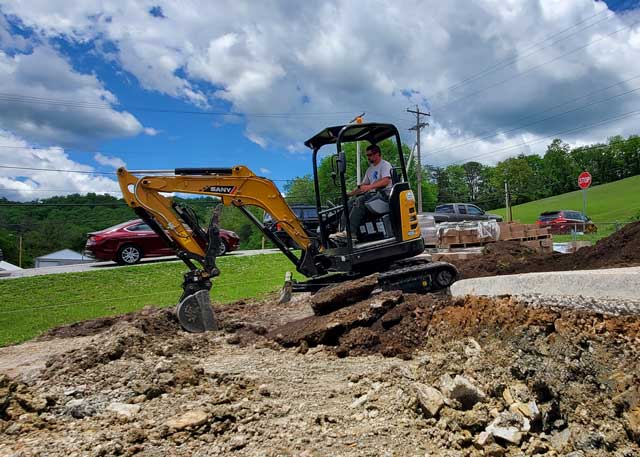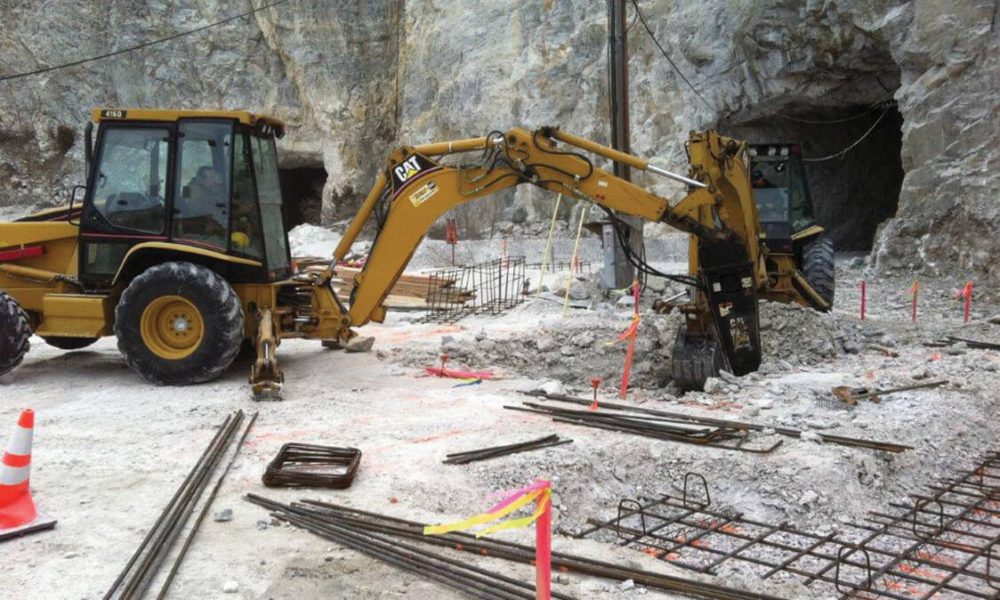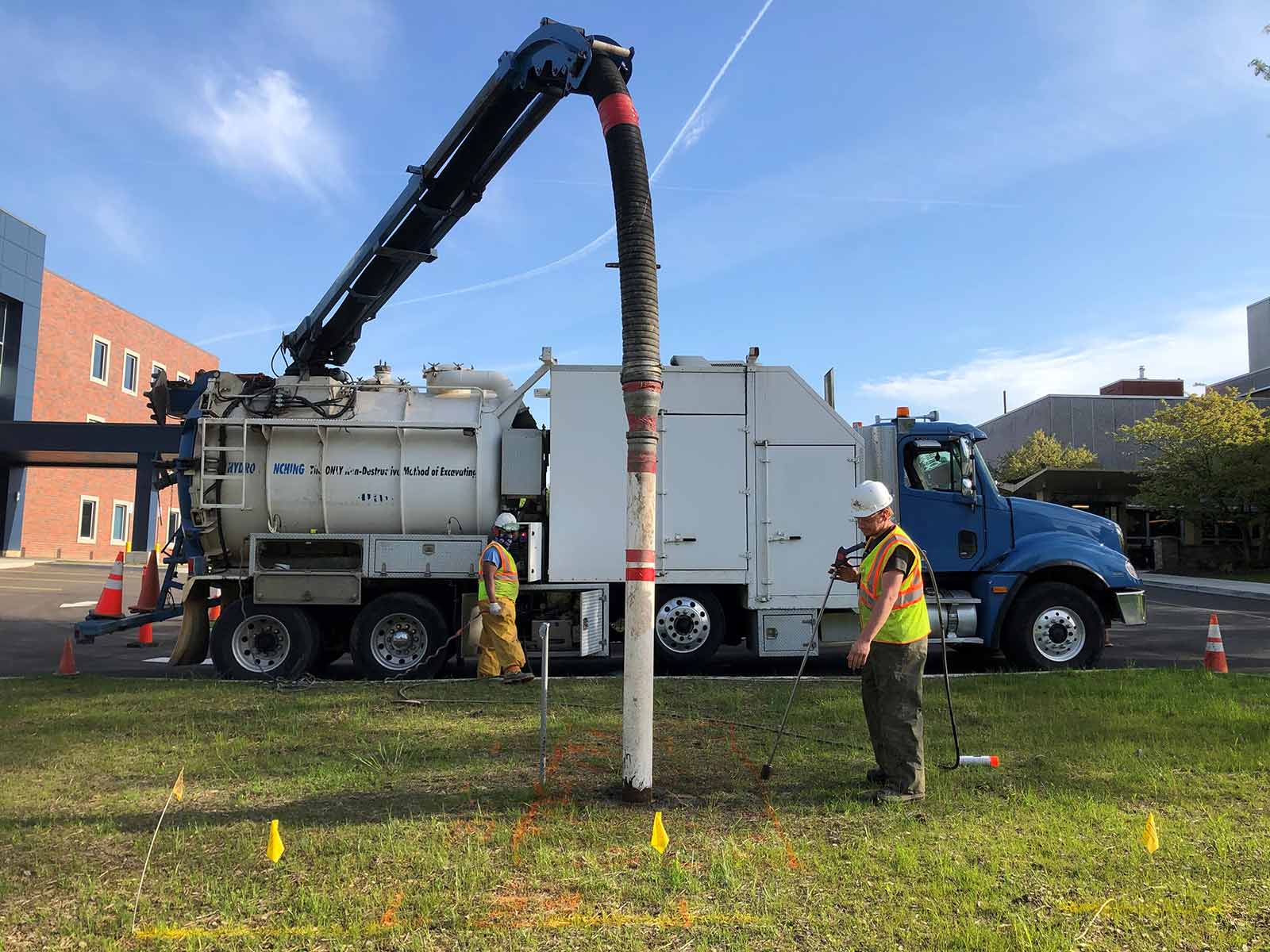Comprehensive Excavation Approaches: Understanding the Principles for Success
The mindful preparation, accurate execution, and precise attention to detail called for in excavation tasks require a comprehensive approach that includes different fundamental elements. The true proficiency exists not simply in comprehending these basics yet in seamlessly incorporating them to browse the complexities of excavation projects with finesse.
Understanding Excavation Task Preparation

The initial phase of any type of excavation task is the preparation stage, where vital choices are made that can significantly affect the result of the task. Recognizing the task budget plan, extent, and timeline restraints is crucial for developing a thorough excavation strategy that makes sure the task's success.
One secret facet of excavation job planning is the advancement of a comprehensive timeline that describes the series of activities, turning points, and due dates. By thoroughly thinking about all these factors during the preparation phase, excavation tasks can be executed successfully and successfully, leading to successful end results - excavating ohio.
Dirt Analysis and Site Examination
Performing comprehensive dirt evaluation and site assessment is a critical action in the preparation stage of any excavation project. Soil analysis involves determining the structure, framework, and residential or commercial properties of the soil at the excavation site. This information is vital for recognizing the dirt's bearing capacity, moisture content, and potential for erosion, which are essential consider determining the excavation approaches and tools required for the job.
Website evaluation exceeds dirt analysis and incorporates a more comprehensive assessment of the overall website problems. This analysis includes determining any type of potential dangers, such as below ground energies, environmental problems, or unstable surface, that can affect the excavation process. By thoroughly reviewing the site, task managers can establish efficient excavation strategies that focus on safety and security, effectiveness, and ecological security.
Utilizing innovative modern technologies like ground-penetrating radar, soil tasting, and drone studies can enhance the precision and effectiveness of soil evaluation and site evaluation. Spending time and resources in these preliminary steps can inevitably save time and stop costly hold-ups or problems throughout the excavation process.
Equipment Choice and Utilization
Efficient excavation jobs count greatly on tactical tools selection and application to make sure optimal efficiency and efficiency. Choosing the ideal devices for the task is crucial in maximizing performance and lessening downtime. Aspects such as the type of dirt, depth of excavation, and job range play a significant function in determining one of the most ideal devices for the job handy.

In addition to choosing the suitable devices, correct usage is essential to project success. Operators must be trained to manage the tools securely and successfully - dump truck companies in ohio. Normal maintenance checks and timely repair work help avoid failures and make sure regular performance throughout the job
Precaution and Laws Compliance
In the realm of excavation jobs, prioritizing safety actions and conformity with policies is paramount to guaranteeing a safe and secure and legally sound operational setting. Precaution include a variety of practices, including performing comprehensive site evaluations, implementing appropriate signs and obstacles, and offering adequate security training for all employees involved in the excavation procedure. Adherence to policies, such as OSHA needs in the United States, ensures that the excavation you could look here job meets the needed standards to shield workers, bystanders, and the surrounding environment.

Monitoring Progress and Adjusting Approaches
Just how can forecast supervisors successfully track the advancement of excavation projects and adapt their techniques appropriately to maximize end results? Monitoring progress is necessary for ensuring that excavation tasks remain on track and meet due dates. Task managers can use various tools and techniques to track development, such as day-to-day progression reports, normal site inspections, and progressed monitoring technologies like drones and general practitioners tracking systems. By continually checking the project's innovation, supervisors can identify any possible hold-ups or concerns early on and take positive procedures to address them.

Final Thought
Finally, understanding the basics of check it out thorough excavation approaches is necessary for the success of any kind of project. By understanding task preparation, evaluating dirt and website conditions, choosing ideal tools, adhering to safety guidelines, and monitoring development, task supervisors can make certain a efficient and smooth excavation procedure. Applying these techniques will cause successful end results and lessen possible threats or obstacles during the excavation task.
The preliminary stage of any kind of excavation task is the planning phase, where critical decisions are made that can dramatically affect the result of the project. Understanding the job budget, timeline, and range constraints is vital for producing a thorough excavation plan that makes sure the task's success.
Just how can predict supervisors properly track the advancement of excavation jobs and adapt their strategies appropriately to enhance end results? By carefully monitoring progress and being eager to adapt approaches, project managers can improve the total success of excavation jobs.
By understanding project preparation, examining dirt and site problems, selecting proper equipment, conforming with security regulations, and keeping have a peek here an eye on progression, task supervisors can guarantee a smooth and reliable excavation process.